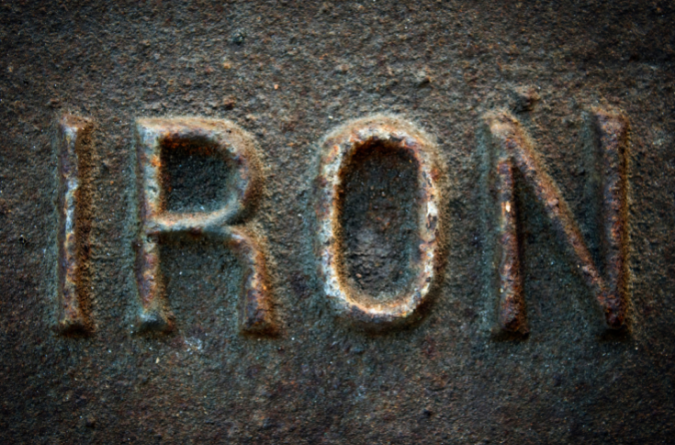
As THE most common nutrient deficiency in the world: iron is a topic of common conversation in my world. So let’s unpack exactly what iron is and it’s relevance in our desire to perform and function optimally.
At the most basic level: iron is a heavy metal with chemical symbol Fe and atomic number 26. Naturally present in many foods, iron is an essential mineral that forms a constituent of many vital proteins and enzymes within the body. These proteins and enzymes require iron in order to efficiently transport oxygen, produce energy, support antioxidant activity, and repair DNA in our body. So yep, it’s pretty important!
There are two types of iron we absorb from food: haem iron, which is found in animal products, and non-haem iron found in plant based food. Non-haem iron is not as easily absorbed as haem iron in the body: a phenomenon referred to as being less bioavailable. Regardless of which type you consume, but especially important when you only consume non-haem sources: we need to ensure we harness the power of supportive nutrients to improve absorption of iron. As well as being mindful of minerals or chemical compounds that inhibit absorption. More on this shortly.
For Aussies, the recommended daily intakes (RDI) of iron from food are: women aged 19-50 to consume 18mg/day and for those >50 years = 8mg/day. The RDI for men is 8mg/day. For many women, this presents a challenge. But even amongst people who do theoretically consume enough iron, many are still reporting pathology results that would indicate deficiencies. Now, it’s important when assessing iron status in the body that we check all parameters. Iron, serum ferritin (the stored version of iron), transferrin (iron-binding proteins) and transferrin saturation (what percentage of your iron-binding proteins are saturated with iron) should all be tested as an absolute bare minimum. In reality, this only tells us part of the story though.
So how or why would someone present with iron deficiency (or suboptimal iron levels) when their diet seems to include enough? There’s a multitude of reasons, and why it’s important to check in with your nutritionist about your unique circumstances. But below I’ve listed a few elements worth considering (note: this list is not exhaustive).
So should we all just supplement with iron? This is a hard NO from me. It’s important to remember that iron is a heavy metal, and in high amounts is actually toxic to the body. No one understands this more than those who suffer from haemochromatosis: the most common inherited genetic condition in Australia, believed to affect 1 in every 200 of us. For these people, iron is absorbed extremely well, and if stores get too high, the body starts to deposit iron in other places like organs. So never ever supplement without first assessing your pathology levels. The other issue I see regularly is if someone already has an impaired digestive system, many iron supplements that are readily available (I’m looking at you Ferrograd), can cause even worse digestive symptoms. Which doesn’t help long-term absorption of food based iron. But, there are some great iron supplements on the market: usually all that require a prescription from your nutritionist, so it’s worth discussing with your practitioner which one may be most appropriate. Remember though: supplements are always just dealing with symptom management and boosting your blood levels. They do not deal with the underlying reason you have iron deficiency in the first place.
As far as food is concerned, here is a list of some of the foods highest in iron:
1/2 cup spinach, cooked = 3.2mg
1/2 cup swiss chard, cooked = 2mg
100g chicken liver = 11mg
100g beef = 3.5mg
100g kangaroo = 3.2mg
100g salmon = 1.3mg
100g chicken = 0.4mg
2 large eggs = 1.9mg
1 cup soy milk = 1.2mg
1/2 cup lentils, cooked = 3.3mg
1/2 cup cannellini beans = 3.3mg
2 Tbsp. cashews = 2.1mg
2 Tbsp. pumpkin seeds = 2.5mg
1 Tbsp. tahini = 0.8mg
2 Tbsp. walnuts = 0.8mg
1/2 cup cooked brown rice = 0.4mg
1/2 cup cooked quinoa = 1.0mg
1/2 cup rolled oats (dry) = 1.4mg
As with any mineral deficiency: there is often a number of contributing factors. But if you find yourself chronically iron deficient, I highly recommend getting some extra assistance (I’d love to help!), in order to get to the root cause and create lasting changes.
Want more personalised advice on what to eat to support YOUR health? Get in touch with us today and book a nutritional medicine appointment.